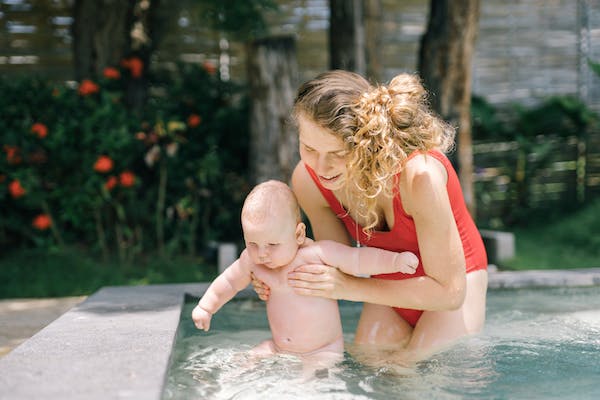Why Baby Swim Classes Are Important
Swimming is a life-saving skill that is essential for everyone, and it is never too early to start learning. Baby swim classes have become increasingly popular over the years for any reasons. These classes provide numerous benefits for both parents and babies. Throughout this article, we will discuss the benefits of baby swim classes for your child.
Introducing Babies to Water
Water is naturally appealing to many babies, and they feel comfortable and relaxed in it. However, for some babies, water can be scary and overwhelming. Baby swim classes provide a safe and controlled environment for babies to experience the water for the first time. This introduction to water can help reduce any fear or anxiety your baby may have, making them more confident and comfortable around water.
Developing Water Safety Skills
One of the most important reasons for taking baby swim classes is to teach them water safety skills. Drowning is one of the leading causes of accidental death in young children, and early exposure to swimming can significantly reduce the risk of drowning. Baby swim classes teach infants basic water safety skills, such as holding their breath, floating on their backs, and reaching for the side of the pool. These skills can save their lives if they accidentally fall into the water.
Strengthening Muscles And Improving Coordination
Babies who take swimming lessons move their arms and legs frequently, which can assist in building muscle and enhancing coordination. They can move more freely in the water than on land thanks to the low-impact environment that the water provides that is kind to their joints. Swimming can enhance fine and gross motor abilities, including kicking, paddling, reaching, and gripping.
Building Confidence And Independence
Swimming is a fun and exciting activity that can help build a baby’s confidence and independence. As babies learn to move independently in the water, they gain a sense of accomplishment and pride. It can translate into other areas of their life as they become more confident and willing to try new things.
Enhancing Cognitive And Social Development
Swimming is not only beneficial for physical development, but it can also enhance cognitive and social development. Research has shown that babies who swim regularly have better cognitive and language skills, as well as improved problem-solving abilities. Swimming classes also allow babies to interact with other children and adults, promoting socialization and communication skills.
Improving Sleep And Appetite
The act of swimming can help tire out a baby, as well as improve their sleep and appetite. Physical activity can help regulate a baby’s sleep patterns, leading to longer and more restful sleep. Additionally, swimming can increase a baby’s appetite, leading to more regular and healthy eating habits.
Confidence
Babies that take swimming lessons become more comfortable in and around the water. Babies engage with one another and the instructor while taking swimming lessons, which helps them develop their social skills and capacity for group work. In addition to these benefits, swimming can increase your child’s confidence and self-esteem.
Increases Quality Time Between Caregivers And Babies
Swim time with a parent in the water encourages one-on-one bonding, even if you have more than one child. As professionals who provide swim lessons point out, it’s just you and your young one during a class, focusing on each other, so it’s a terrific chance to spend valuable time alone together.
Improves Coordination And Balance
Swimming in the water strengthens your baby’s muscles and improves their balance and coordination. Babies struggle to coordinate the movements of their little arms and legs, and even small advancements can mark major developmental milestones.
Creating A Bonding Experience
Baby swim classes offer a distinct opportunity for parents to strengthen their bond with their babies. As parents and babies explore the water together, they can develop a special bond that can last a lifetime. The classes provide a chance for parents to meet other parents and share experiences, creating a sense of community and support.
Safety Tips
Never leave a newborn or infant alone near a body of water, including a bathtub or a swimming pool. It’s crucial to remember that merely 1 inch of water can cause a youngster to drown. The best course of action for kids under 4 is “touch supervision.” That implies that an adult must always be around to touch them. In addition, bear the following in mind whenever your child is near water:
- Be cautious of all water, including that in bathtubs, ponds, fountains, and even watering cans.
- Always make sure an adult is watching your child while they swim.
- Enforce safety regulations such as not running or pushing people underwater around the pool.
- It’s essential to wear a life jacket while on a boat, and using inflatable mattresses or toys as life jackets should be avoided.
- Before swimming in your pool (if it has one), remove the cover entirely.
- If you watch youngsters swim, avoid drinking alcohol and put away all distractions (using your phone, working on a computer, etc.).
In conclusion, baby swim lessons are crucial for the growth and security of infants. They educate infants and toddlers on vital water safety skills while providing a safe, regulated environment for them to explore the water. Along with enhancing social, cognitive, and physical growth, swimming can help strengthen parent-child relationships. So, if you have a baby, sign them up for swim lessons. It might be among your wisest choices for their development and well-being.
Tags: Swim ClassesSwim Classes for BabiesSwim School

